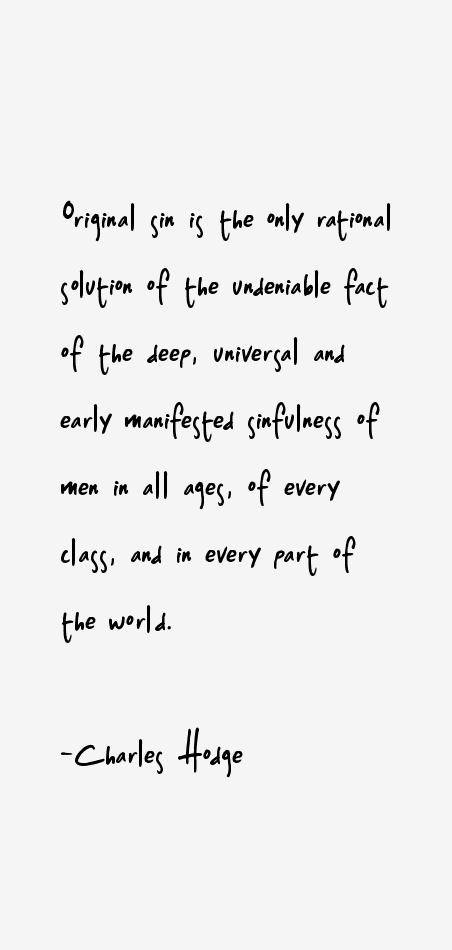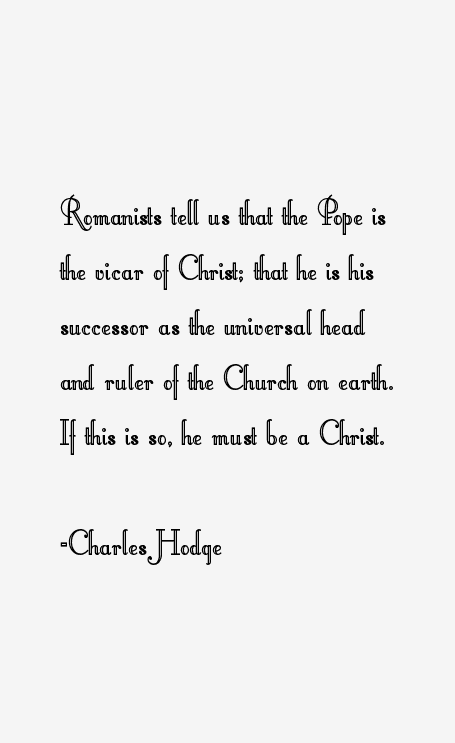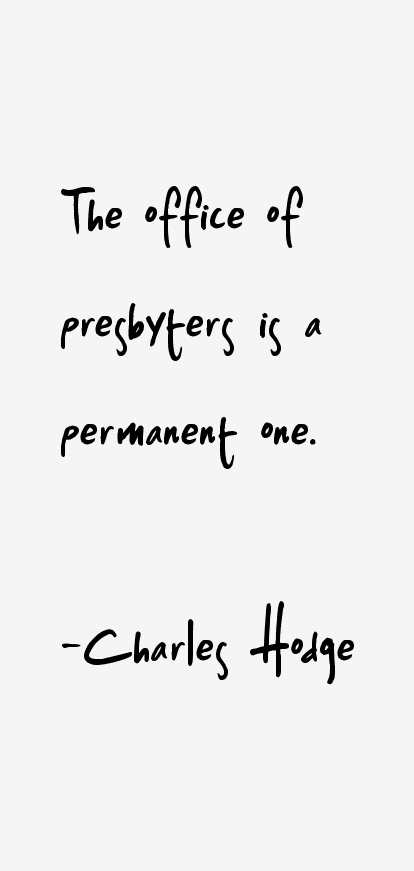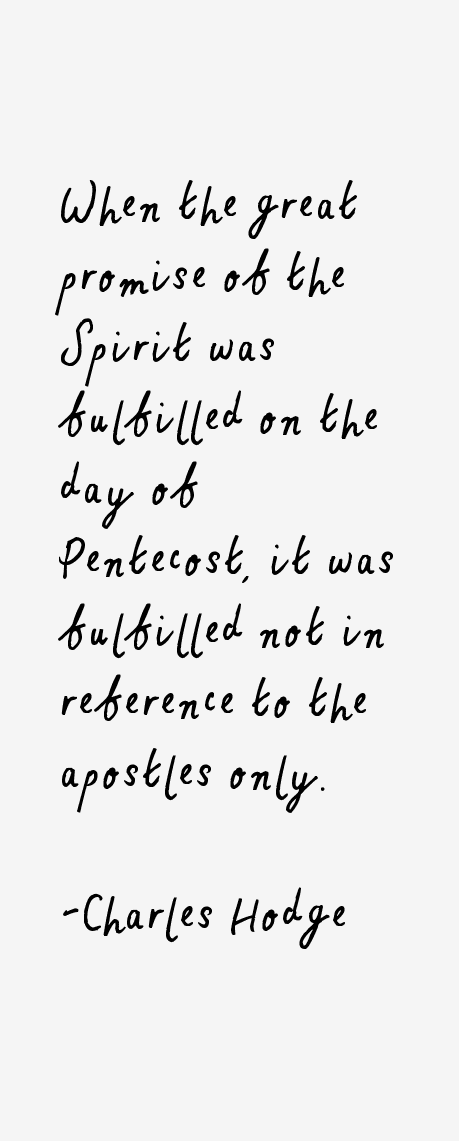Charles Hodge Quotes & Sayings (Page 2)
Charles Hodge quotes and sayings page 2 (theologian). Here's quote # 11 through 20 out of the 29 we have.
“The Reformers, therefore, as instruments in the hands of God, in delivering the Church from bondage to prelates, did not make it a tumultuous multitude, in which every man was a law to himself, free to believe, and free to do what he pleased.”
“All Church power arises from the indwelling of the Spirit; therefore those in whom the Spirit dwells are the seat of Church power. But the Spirit dwells in the whole Church, and therefore the whole Church is the seat of Church power.”

“So too, in forming a constitution, or in enacting rules of procedure, or making canons, the people do not merely passively assent, but actively cooperate. They have, in all these matters, the same authority as the clergy.”

“Original sin is the only rational solution of the undeniable fact of the deep, universal and early manifested sinfulness of men in all ages, of every class, and in every part of the world.”
“Our second remark is, that the office is of divine appointment, not merely in the sense in which the civil powers are ordained of God, but in the sense that ministers derive their authority from Christ, and not from the people.”

“Romanists tell us that the Pope is the vicar of Christ; that he is his successor as the universal head and ruler of the Church on earth. If this is so, he must be a Christ.”
“The Church, during the apostolic age, did not consist of isolated, independent congregations, but was one body, of which the separate churches were constituent members, each subject to all the rest, or to an authority which extended over all.”

“There can, therefore, be no doubt that Presbyterians do carry out the principle that Church power vests in the Church itself, and that the people have a right to a substantive part in its discipline and government.”

“The office of presbyters is a permanent one.”

“When the great promise of the Spirit was fulfilled on the day of Pentecost, it was fulfilled not in reference to the apostles only.”
Charles Hodge Quotes Rating
No Ratings Yet
Leave A Comment
























